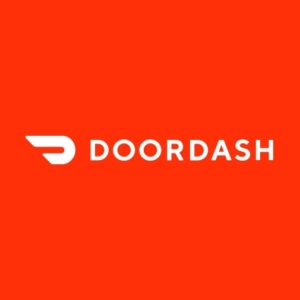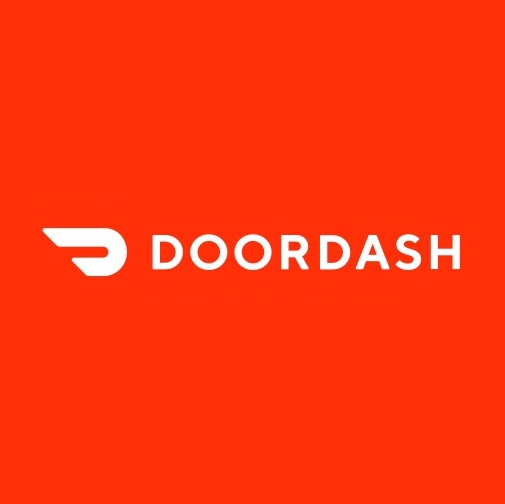Category: Independent IPO Research
DoorDash: Getting Dinner on the Table
 DoorDash (NYSE: DASH), a food delivery platform and service, was founded in 2013. Today, DoorDash is headquartered in San Francisco, California, where it is led by Tony Xu, who acts as the company’s CEO and Director. Consensus analyst estimates call for DoorDash to produce revenues of $2.9 billion in fiscal 2020, along with a loss per share of $1.08. In fiscal 2021, analysts foresee an improvement, with revenue estimates rising to $3.7 billion and EPS estimates at $0.15.
DoorDash (NYSE: DASH), a food delivery platform and service, was founded in 2013. Today, DoorDash is headquartered in San Francisco, California, where it is led by Tony Xu, who acts as the company’s CEO and Director. Consensus analyst estimates call for DoorDash to produce revenues of $2.9 billion in fiscal 2020, along with a loss per share of $1.08. In fiscal 2021, analysts foresee an improvement, with revenue estimates rising to $3.7 billion and EPS estimates at $0.15.
DoorDash debuted on the New York Stock Exchange on December 9th, 2020, in a 33 million Class A common stock offering, priced at $102. With all shares coming from the company, DoorDash generated close to $3.4 billion from the offering. With a pre-IPO cash balance of $1.6 billion and no debt, DoorDash possessed roughly $5 billion in cash with no debt immediately after the offering. At a recent share price of $180, DoorDash carries a market cap of approximately $57 billion.
DoorDash’s mission is to grow and empower local economies. DoorDash was founded as a merchant-first business, as the platform allows brick-and-mortar companies to thrive in an ever-growing convenience-oriented economy with changing consumer demands. This is achieved through the DoorDash Marketplace, which provides a variety of services, allowing merchants to acquire customers, deliver orders, gain access to insights and analytics, merchandise, process payments, and manage customer support.
The company’s proprietary technology enables it to optimize interactions between merchants, consumers, and delivery drivers, or Dashers, to create a seamless end-to-end experience. Every order on the Marketplace platform is analyzed by DoorDash’s machine learning algorithms to continuously improve the quality and performance of the platform. This allows the company to present personalized content to consumers by accounting for past order preferences, provides data for Dashers to maximize their earnings opportunities, and optimizes the experiences of all users on the Marketplace through increasingly intelligent and efficient logistics.
DoorDash assists merchants by catalyzing incremental sales and leveraging their fixed cost investments while establishing an online presence and broadening their reach. With DoorDash, merchants have the option of fulfilling orders through delivery, facilitated by the platform, or in-person pickup by customers. Additionally, merchants can launch promotions on the Marketplace. Merchants have produced over $19 billion in combined total sales on the Marketplace, and in 2019, experienced a 59 percent year-over-year same store sales increase on the platform. Dashers have garnered more than $7 billion combined through the Marketplace.
In addition to individual, one-off orders, DoorDash offers a membership program called DashPass where customers pay a $9.99 monthly delivery fee for unlimited deliveries from eligible merchants. While currently only available for restaurants, the company anticipates providing customers access to all of their local businesses in the future, allowing consumers to receive benefits while shopping in-store, at-home, or anywhere else.
DoorDash’s Marketplace platform has connected more than 390,000 merchants, over 18 million consumers, and more than one million Dashers throughout the United States, Canada, and Australia. In total, more than 900 million orders have been processed and completed through the platform. DoorDash has partnerships with more than 175 of the 200 largest national restaurant brands, such as McDonald’s, Chick-Fil-A, The Cheesecake Factory, Chipotle, Wingstop, and Wendy’s.
DoorDash is the largest and fastest growing local food delivery logistics firm in the United States, boasting a 50 percent United States category share and a 58 percent category share in suburban markets. Off premises consumption of restaurant meals (i.e., takeout or delivery orders from restaurants) totaled nearly $303 billion in the United States in 2019. Despite this, DoorDash generated a mere $8 billion in total orders in 2019, representing less than three percent of the total market opportunity in America.
ZoomInfo Technologies: Zeroing in on Sales Leads
 ZoomInfo Technologies (NASDAQ: ZI), not to be confused with Zoom Video Communications (NASDAQ: ZM), is the first software IPO in many months. Based in Vancouver, Washington, ZoomInfo provides a database utilized by sales and recruitment professionals to identify key decision makers, and accelerate the sales process. Company revenue in 2019 was $293 million, up from $144 million in the prior year. In 2019, the company generated operating income of $36 million.
ZoomInfo Technologies (NASDAQ: ZI), not to be confused with Zoom Video Communications (NASDAQ: ZM), is the first software IPO in many months. Based in Vancouver, Washington, ZoomInfo provides a database utilized by sales and recruitment professionals to identify key decision makers, and accelerate the sales process. Company revenue in 2019 was $293 million, up from $144 million in the prior year. In 2019, the company generated operating income of $36 million.
ZoomInfo priced its 44.5 million share Class A common stock IPO on June 4, 2020 at $21, with the stock closing at $34. Net proceeds of roughly $887 million will be used to redeem the outstanding Series A preferred units of ZoomInfo Holdings for roughly $274, repay $370 million aggregate principal of its outstanding second lien term loans, repay $35 million of debt under its first lien revolving credit facility, and buy ZoomInfo OpCo equity interests from certain equity holders for roughly $43 million. It also intends to pay expenses relating to the offering. This would leave it with roughly $140 million for general corporate purposes.
The deal was led by sizable number of investment banks, all of which will also provide research on the company to investors, after receiving compensation for their participation in the IPO. These include J.P. Morgan, Morgan Stanley, Credit Suisse, and Barclays, along with BofA Securities, Deutsche Bank Securities, RBC Capital Markets, UBS Investment Bank, Wells Fargo, Canaccord Genuity, JMP Securities, Mizuho Securities, Piper Sandler, Raymond James, Stifel, SunTrust Robinson Humphrey, and Roberts & Ryan.
At a recent share price of $51, ZoomInfo has a market cap of roughly $21 billion, based on 56 million Class A, 239 million Class B, and 98 million Class C shares. We note that public shareholders will own about 12 percent of the company’s outstanding common stock, and hold less than 1.5 percent of the voting rights.
ZoomInfo serves roughly 15,000 companies with a cloud database platform that collects company-specific information relating to personnel, location of facilities, news and events, products and services sold, as well as technologies utilized—among other attributes—on roughly 14 million companies. The information is utilized by sales, marketing, and recruiting professionals to target key decision-makers, in order to sell their products and services. ZoomInfo’s database is updated frequently, and draws upon artificial intelligence to help determine the accuracy of the information that it collects.
ZoomInfo is the combination of two companies: Zoom Info (originally Eliyon Technologies), and DiscoverOrg. Eliyon Technologies was established in 2000. After having been acquired private equity firm Great Hill Partners in August of 2017 for an estimated $240 million, the company acquired RainKing in 2017, and NeverBounce in 2018.
Separately, Henry Schuck and Kirk Brown created DiscoverOrg in 2007. In November of 2019 DiscoverOrg acquired Zoom Information in 2019 for an estimated $500 million, and renamed the combined company ZoomInfo Technologies. As a result of the merger, the company serves a wide range of customers across multiple sectors, including software, business services, manufacturing, telecom, financial services including insurance, and retail.
Nearly all of ZoomInfo’s revenue comes from software subscriptions. Six hundred thirty, or less than five percent of the company’s 15,000 customers generate subscription revenue exceeding $100,000 per year. In 2019, the combined companies generated $293 million, up from $144 million. Income from operations on a pro forma basis grew from $27 million to $36 million. As a result of multiple rounds of private equity and venture capital funding, ZoomInfo, prior to its IPO, had just $63 million in cash, along with $1.2 billion in long term debt. Based on the company’s stated post-IPO plans, it will still have over $800 million in long term debt on a pro-forma basis following the offering.


